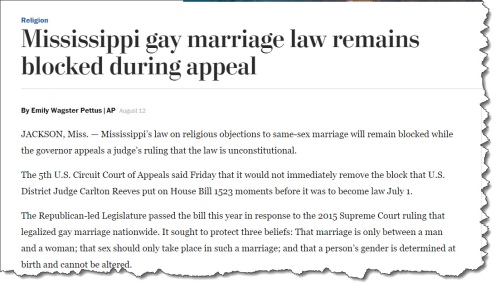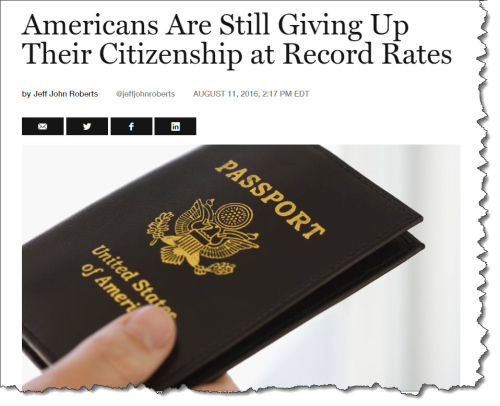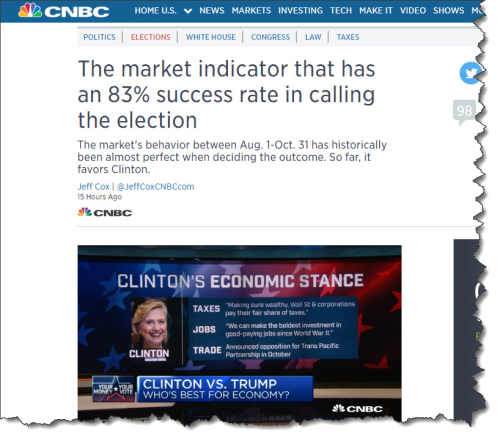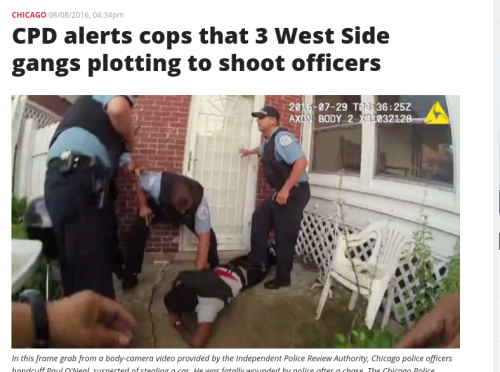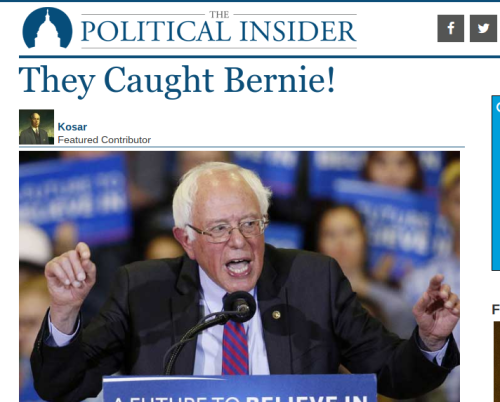James L. Paris's Blog, page 148
August 15, 2016
In Crime-Ridden Olympics, Did IOC Try to Cover Up Armed Robbery of Superstar Swimmer Lochte?
While it is no secret that rampant street crime in Rio de Janeiro has plagued the Summer Olympics from before they even officially began, there have been more than a few pieces of evidence that various ���powers that be��� have tried to suppress information regarding the extent to which Rio crime has infiltrated the games.
Now, in what is perhaps the most obvious attempt so far of a cover-up, the International Olympic Committee (IOC) appears to have flatly denied a report that superstar American swimmer Ryan Lochte was robbed at gunpoint, even while the victim himself readily discussed the incident.
It is now confirmed that Lochte and three other members of the American swim team were robbed at gunpoint by thieves who, posing as cops, stopped the taxi in which they were riding. Lochte detailed that one of the men put a gun to his head, although, very thankfully, when the incident was over, no one had been hurt. The swimmers had been out at a party, and were returning to the athlete���s village in the early morning hours of Sunday when the robbery occurred.
Although Mark Adams, a spokesman for the IOC, said at a press briefing, ���I can tell you from Ryan Lochte���s mouth that the story is absolutely not true,��� Lochte has related details of the incident himself to a variety of outlets.
While the IOC���s initial denial is being blamed on ���confusion,��� many observers are speculating that the governing body, now in a constant state of damage control over the enormous crime problem that has beset the games, made a lame, knee-jerk, and very-failed attempt to sweep the Lochte incident under the rug.
By Robert G. Yetman, Jr. Editor At Large
August 14, 2016
Religious Objections to Same-Sex Marriage to Be Blocked During Appeal
Although some states have tried to institute exceptions on religious grounds to the wave of pro-same-sex judicial rulings that have occurred at both state and federal levels, they���re not having much luck.
The latest blow dealt to a state that has attempted to legally preserve the rights of clerics and others who object to providing services to people of lesbian, gay, bisexual, and transgender persuasions on the basis of ���a sincerely held religious belief or moral conviction��� came from the 5th U.S. Circuit Court of Appeals, and targeted Mississippi���s House Bill 1523. A U.S. District Court judge blocked the bill from becoming law just before it was due to take effect on July 1, and the decision by the 5th Circuit on Friday turned aside Gov. Phil Bryant���s effort to allow the law to become effective while his appeal of Judge Carlton Reeves��� earlier decision remains in process.
HB 1523, known formally as the Religious Liberty Accommodations Act, was passed earlier this year by the Mississippi Legislature with the intention of protecting religious groups and small businesses from any legal ramifications that might stem from their refusal to provide services on behalf of same-sex couples. An interest in protecting such folks has been amplified for many in the wake of the Supreme Court���s 2015 ruling that legalized gay marriage across the United States. In the case of the Mississippi law, the priest who refuses to serve as the officiant at a gay marriage, as well as the baker who declines to provide a wedding cake to a same-sex couple, would enjoy a strong measure of protection.
Following Friday���s ruling, Gov. Bryant said, ���House Bill 1523 is a commonsense provision that protects the religious liberty of all Mississippians, while respecting the rights of all. We look forward to defending HB 1523 vigorously on appeal.���
By Robert G. Yetman, Jr. Editor At Large
Number of Americans Renouncing Citizenship Remains at Record Highs
America may still be the greatest country on earth to many, but a growing number of its citizens are seeing things differently.
An article over at Fortune.com details that renunciation of citizenship on the part of U.S. citizens remains on the rise. The article reports that 504 people renounced last quarter, up from the 461 who renounced during the second quarter of 2015. Moreover, 1,158 Americans decided to hand in their passports during the first quarter of this year, which means that, all told, renunciation rates are about 15 times what they were ten years ago.
So, what gives?
Experts say the overriding reason for the rise in renunciations is related to taxes (what else?). Fortune quotes attorney Max Reed, a ���cross-border��� tax attorney who works out of Vancouver, Canada, who says that the Americans who come to his office with the intention of renouncing ���are tired of the hassle and headache and expense of complying with US tax rules. Most of them are U.S. citizens who���ve lived abroad for a long-time.��� According to Reed, he sees an average of two American citizens per week come into his office, looking to give up their citizenship.
For a lot of these people, compounding the desire to split entirely from the U.S. has been the effects of the Foreign Account Tax Compliance Act, or FATCA. The 2010 legislation demands that Americans living outside the U.S. file annual reports on bank accounts they maintain outside of the country, and the non-U.S. institutions are themselves required to disclose asset information on those people they believe to be U.S. citizens.
While it may be difficult for many of us to relate to the problems of the truly wealthy, I can see how the heavy tax burden and increased financial scrutiny to which America���s most well-heeled citizens are now subjected might permanently drive some from our shores.
By Robert G. Yetman, Jr. Editor At Large
August 13, 2016
���Perfect��� Credit is Not as Important as Credit That is Not ���Bad���
One blogger over at Lifehacker.com has revealed a surprising (to many) truth about credit: While it is important to have credit that is not poor, worrying about having a score that is in the stratosphere is a waste of time.
Kristin Wong has penned a piece entitled, ���Your Credit Score Doesn���t Matter Unless It���s Bad,��� in which she details her not-so-amazing experiences as a person going through life with a basically-pristine score (she self-declares a score of ���close to 800���). Much to her chagrin, she found, as do a lot of young adults with great credit when they start shopping out the biggest of big ticket items, that while bad credit will always be a disqualifier from quality rates, having basically perfect credit is not of any particular benefit.
For example, Wong details that her fantastic score was of very limited value when she went house-shopping with her fianc��. While his score (according to Wong) was about 100 points lower than hers, qualifying with her as the sole borrower���and losing out on an entire income source���saw a rate improvement of just six-tenths of a percent (4.2% vs. 4.8%). In a case like this, the relatively small rate improvement simply is not worth the absence of a second borrower���s income.
Additionally, as Wong discusses, in the world of car-buying, with basically everyone needing a car and so many people lugging around checkered credit histories, the car finance industry has essentially been forced to lower its expectations. This is especially apparent in the case of less expensive cars, the purchase of which results in car payments of a size that really anyone can afford. In a case like that, having ���perfect��� credit won���t really be of any value.
Don���t take the wrong message from this. You want your credit to be as good as it can be, but it���s also worth remembering that there is a ���diminishing returns��� effect that becomes very pronounced once your score goes much over 700. Do the legwork necessary to make sure your score is well out of the gutter, but don���t feel it necessary to kill yourself in order to realize a score of, say, 800. The investment of time and energy just isn���t worth it, from a standpoint of practicality.
By Robert G. Yetman, Jr. Editor At Large
Stock Market Index Has an 83% Success Rate in Calling the Presidential Election
As it turns out, the S&P 500 index is a pretty good indicator of who will win a presidential election. How good? Well, according to an article over at CNBC.com, the price action of the S&P between August 1 and October 31 of election years since 1944 has accurately predicted the November winner in 15 of the last 18 elections; that���s 83% of the time.
Specifically, a review of the behavior of the S&P 500 during these periods reveals that when the market rises during this period, the party that is in office will win the November election, and when the market declines during these periods, the party that is on the outside, looking in at the Oval Office will triumph.
In one sense, understanding the connection between a robust stock market in the months preceding a presidential election and the sitting party retaining control in November���or, conversely, the relationship between a faltering market and the contending party prevailing���is not difficult to understand. To many, the stock market is the economy, as untrue as that actually is, and so, if it is doing well, the ���snapshot��� impression a lot of folks have is that the economy is going along swimmingly, and what better perception to have from the electorate if you���re the incumbent party, going into November?
Right now, then, things look pretty good for Hillary Clinton, if one wishes to refer to this ���indicator��� for predictive guidance. The market has been sailing along here recently, due in no small way to the fact that investors are reasonably satisfied that interest rates will not be going up any time soon, and certainly not by any significant amount. An ���easy��� monetary policy is typically a stock market���s best friend, and with no rate increase in the offing, the expectation is that the market will continue to move upward, thus allowing many voters to persist in their notions of a thriving economy.
By Robert G. Yetman, Jr. Editor At Large
August 12, 2016
Trump Appears to Favor Conservative Stalwart, Anti-Globalist John Bolton for Secretary of State
Little by little, Republican presidential nominee Donald Trump is making what sound like very deliberate suggestions about various cabinet appointments he has in mind for his administration. As reported by Cortney O���Brien of Townhall.com, in an interview with popular conservative radio host Hugh Hewitt on Thursday, Trump indicated that he was giving serious consideration to the idea of appointing John Bolton, former U.S. ambassador to the United Nations, as his Secretary of State.
For starters, Hewitt asked Trump to clarify what he meant by his recent comment that ���Second Amendment people��� could perhaps do something should Hillary Clinton be elected and have the ability to nominate anti-gun Supreme Court justices. Many took his off-handed remark as a suggestion that a fan of the Second Amendment might be able to step up and shoot Mrs. Clinton as a way of keeping her from appointing the ���wrong��� judges.
In response, Trump told Hewitt that he was in no way saying such a thing, and was instead referencing the ���power of the voter. We���re talking about the tremendous power, and you understand this probably better than anybody, the power behind the 2nd Amendment, the strength behind the 2nd Amendment.���
When the conversation moved to the subject of terrorism, Trump used the opportunity to reiterate his position that Clinton and President Obama are essentially responsible for ISIS, and when Hewitt followed up by asking Trump about the possibility of Bolton as Secretary of State, the candidate responded by saying, ���I think John Bolton���s a good man. I watched him yesterday, actually, and he was very good in defending me in some of my views, and very, very strong. And I���ve always liked John Bolton. Well, we are thinking about it, Hugh. I will say that. We are thinking about it���.we are seriously thinking about it.���
Bolton is a darling of conservatives, in no small way because of his unabashed ���America first��� ideology that has little regard for the globalism that has come to permeate the belief systems of so many American politicians, even a few supposed conservatives.
By Robert G. Yetman, Jr. Editor At Large
LGBT Groups Object to Big 12 Admitting Brigham Young University
The Big 12, one of the most storied conferences in college athletics, is in the midst of an expansion effort. One of the schools seeking to join, Brigham Young University (BYU), itself an institution with a substantial athletic legacy, is finding that its candidacy is running into trouble on the basis of the school���s stance when it comes to alternative lifestyles.
According to ESPN, BYU, which is owned by The Church of Jesus Christ of Latter-day Saints, is the subject of a letter from various LGBT groups to the Big 12 commissioner that urges the conference to pass on admitting the school to the conference.
The letter to commissioner Bob Bowlsby, written by Athlete Ally, an advocacy group for the LGBT sports community, and co-signed by dozens of other LGBT support organizations, reads, in part, ���As organizations committed to ending homophobia, biphobia and transphobia both on and off the field of play, we are deeply troubled by this possibility. We feel it would be extremely problematic to include BYU in your conference expansion.���
���Currently, the Big 12 as a conference is overwhelmingly LGBT-inclusive. BYU, conversely, actively and openly discriminates against its LGBT students and staff. It provides no protections for LGBT students. In fact, through its policies, BYU is very clear about its intent to discriminate against openly LGBT students, with sanctions that can include suspension or dismissal for being openly LGBT or in a same-sex relationship.���
There is nothing in the BYU Honor Code that prevents attendance at the school by members of the LGBT community, but the Honor Code does reflect the following language: ���Homosexual behavior is inappropriate and violates the Honor Code. Homosexual behavior includes not only sexual relations between members of the same sex, but all forms of physical intimacy that give expression to homosexual feelings.���
According to ESPN, Athlete Ally spokesperson Ashland Johnson indicated that the letter was written on the basis of the objectionable language found in the BYU Honor Code, and not because of any incident of discrimination.
By Robert G. Yetman, Jr. Editor At Large
August 11, 2016
Wikileaks��� Julian Assange Suggests Seth Rich was His DNC Email Source
During the morning hours of July 8, DC resident Seth Rich was shot and killed���after being beaten���while he was walking back to his home and chatting on the phone with his girlfriend. Police have no leads to speak of, and are unsure as to a motive for the killing. Rich���s wallet, watch, and phone were still on his person when he was found.
While Rich���s killing may ultimately prove to be a robbery gone wrong, many are now speculating that his job as a Democratic National Committee (DNC) staff member may have played a part in his demise; some particularly conspiracy-minded folks even think that Rich may actually be the person responsible for giving the 30,000 ���private��� emails from inside the DNC to Wikileaks.
Now, in an additional development along that line of speculation, Julian Assange, the man behind the Wikileaks organization, suggested for the first time this week that Rich was, in fact, an informant for Wikileaks. Additionally, Wikileaks has announced a $20,000 reward for information related to the Rich murder.
Assange raised the subject of Rich���s possible involvement with Wikileaks during an appearance on the Dutch television program Nieuwsuur (���Newshour���).
An excerpt from the video:
Julian Assange: ���Whistleblowers go to significant efforts to get us material and often very significant risks. As a 27 year-old, works for the DNC, was shot in the back, murdered just a few weeks ago for unknown reasons as he was walking down the street in Washington.���
Reporter: ���That was just a robbery, I believe. Wasn���t it?���
Julian Assange: ���No. There���s no finding. So��� I���m suggesting that our sources take risks.���
Curiouser and curiouser���
By Robert G. Yetman, Jr. Editor At Large
Report: Chicago Gangs Met to Discuss Killing Cops
In the wake of a controversial police shooting in Chicago, a report that three of the city���s most well-known gangs met last week to discuss working together to kill members of the Chicago Police Department is being seen as credible by that agency.
The Chicago Sun-Times is indicating that the meeting between leaders of the Vice Lords, Black Disciples, and Four Corner Hustlers occurred last Thursday, with an alert issued to CPD members the next day.
According to the alert, while all three gangs are in on the plan to execute police officers, it is the Four Corner Hustlers that appears to be the outfit providing guns to all involved. Additionally, according to police, the Four Corner Hustlers appear to be taking a cue from the recent murder of five police officers in Dallas, and explicitly commissioning a sniper from within their organization to do his part to kill Chicago cops.
While alliances among gangs have been more common in recent years, it is, apparently, particularly easy to get along when the subject is murdering police officers.
The catalyst for this specific, coordinated gang effort is the recent fatal shooting by CPD officers of 18-year-old Paul O���Neal. In the course of chasing O���Neal, who is alleged to have stolen a Jaguar from the suburb of Bolingbrook, officers opened fire. While video evidence of the incident that is still being sorted out, a review of it thus far by the Independent Police Review Authority has already determined that three officers violated various police procedures in relation to the pursuit and killing of O���Neal. It is this public admission that has, in large part, exacerbated tensions over the incident.
CPD authorities have advised department personnel to ���limit interactions and visibility��� for the time being.
By Robert G. Yetman, Jr. Editor At Large
August 10, 2016
Bernie Sanders CAUGHT buying $600,000 Summer Home
ChristianMoney.com has a big question for Bernie Sanders - How can you afford a third house on a Senate salary? (not to mention the tens of thousands you have in credit card debt as listed on your 2015 financial disclosure) - Well, setting aside all of the socialist talk and the evils of riches, we simply want to know how you were able to pull this off. Maybe you took one of those Trump University real estate classes? A lot of your supporters are now wondering about the timing of this big purchase, just after you bowed out of the presidential race and endorsed Hillary Clinton. Well, I guess you missed the wisdom of those Hollywood heist movies, where you are supposed to 'lay low' for a while before spending your windfall all over town. We bet your supporters can really feel the Bern today...


